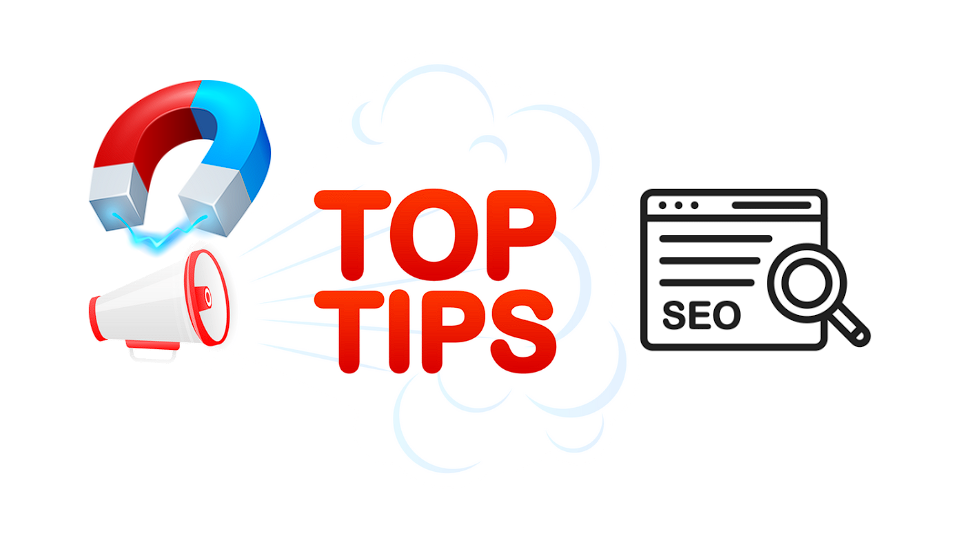Are you looking for Best SEO Tips for Startups? To rank higher on Google, start with targeted keyword research to attract the right audience. Use long-tail keywords and align them with user intent. Optimize on-page elements like meta tags, alt text, and content structure. Create high-quality, engaging content tailored to your audience’s needs and include keywords naturally. Build site authority by acquiring high-quality backlinks through influencer outreach and guest blogging. Regularly monitor your SEO performance with tools like Google Analytics and adjust your strategy based on key metrics. Master these steps to boost your startup’s visibility and performance, and you’ll reveal more insights.
Keyword Research

Understanding the importance of keyword research is crucial for driving targeted traffic to your startup’s website. This process helps you identify potential customers’ terms and phrases when searching for products or services like yours. By focusing on the right keywords, you can attract visitors more likely to convert into customers, empowering you to make informed decisions about your SEO strategy.
One strategic aspect of keyword research is identifying long-tail keywords. While having lower search volumes, these longer and more specific phrases often have higher conversion rates because they cater to particular search intent. For instance, instead of targeting a broad term like ‘shoes,’ you’d focus on ‘running shoes for women with flat feet.’ This strategic insight helps you attract visitors who know exactly what they want.
Understanding search intent is not only important; it’s also empathetic in keyword research. Search intent refers to the reason behind a user’s query. Are they looking for information, ready to purchase, or seeking a solution to a problem? By aligning your keywords with user intent, you ensure your content meets their needs, showing your audience that you’re customer-focused, improving your chances of ranking higher on Google and driving valuable traffic to your site.
On-Page Optimization

On-page optimization is vital for ensuring your website’s content is search engine-friendly and engaging for users. The first thing you’ll want to focus on is your meta tags, which include the title and description of your web pages. These should be concise, keyword-rich, and compelling enough to entice users to click through. Remember to underestimate the power of a well-crafted meta description; it’s your first impression on potential visitors.
Next up, pay close attention to your images. Using alt text for images is essential for on-page SEO. Alt text helps visually impaired users understand your content and gives search engines context about what your pictures are depicting. Ensure your alt text is descriptive and includes relevant keywords without keyword stuffing.
Another important aspect of on-page optimization is the structure of your content. Use header tags (H1, H2, H3) to organize your text, making navigating easier for users and search engines. Internal linking is also beneficial; it helps distribute page authority and keeps users engaged longer.
Content Creation

Developing high-quality, engaging content is essential for attracting and retaining visitors to your startup’s website. Your content strategy should focus on creating valuable and relevant material that resonates with your audience. This could be through insightful articles, comprehensive guides, or engaging videos. Start by identifying your target audience’s needs and preferences, then tailor your content to address those points.
Content quality is vital. Poorly written or irrelevant content will drive visitors away, negatively impacting your SEO efforts. Aim to produce well-researched, insightful articles, blog posts, and other types of content that provide real value. This keeps your audience engaged and encourages them to share your content, increasing your reach.
Incorporate keyword-rich content strategically. Conduct thorough keyword research to identify terms your audience is searching for, and seamlessly integrate these keywords into your content. Avoid keyword stuffing, as it can harm your rankings and readability. Instead, use keywords naturally within headings, subheadings, and throughout the text.
Link Building

Are you curious about how to boost your site’s authority and improve its search rankings? Link building is an important off-page SEO strategy to which you must pay attention. By acquiring high-quality backlinks from reputable websites, you signal to search engines that your content is trustworthy and authoritative. This, in turn, can greatly enhance your search visibility.
To start link building, create shareable, valuable content other sites want to link to. This could be in the form of blog posts, infographics, or detailed guides. Once you have content worth sharing, it’s time to employ influencer outreach—contact industry influencers and bloggers who might find your content useful and ask them to feature it. Personalized, genuine outreach can go a long way in securing valuable backlinks.
Another effective strategy is guest blogging. Write high-quality articles for authoritative sites within your niche. You’ll typically get a backlink to your site in exchange for your content. This helps with link-building and exposes your brand to a broader audience.
Performance Tracking

Monitoring your SEO performance is essential for understanding what’s working and where you need to make adjustments. To get started, you’ll want to leverage tools like Google Analytics. This powerful tool provides invaluable insights into your website’s traffic, user behavior, and conversion rates. Analyzing this data lets you pinpoint which ranking factors drive your success and which areas need improvement.
Regular SEO audits are another vital component of performance tracking. An SEO audit helps you assess the health of your website, identify technical issues, and evaluate your on-page and off-page SEO efforts. By conducting these audits periodically, you can ensure your SEO strategy remains aligned with your goals and adapt to any changes in search engine algorithms.
Remember to track key metrics such as organic traffic, bounce rate, and keyword rankings. These metrics offer a clear picture of your site’s performance and help you gauge the effectiveness of your SEO efforts. By closely monitoring these indicators, you can make data-driven decisions to optimize your strategy and improve your rankings on Google. In short, consistent performance tracking is essential for long-term SEO success.
Frequently Asked Questions
What Is the Role of User Experience (Ux) in Seo?
User experience (UX) plays an essential role in SEO. Users who find your site easy to navigate and engaging will likely stay longer, reducing bounce rates. Bounce rate is the percentage of visitors who navigate away from your site after viewing only one page. A high bounce rate can indicate that your site needs to meet user expectations or your content needs to be more engaging. This signals to search engines that your content is valuable. Improving site speed, mobile optimization, and intuitive navigation enhances UX, which can boost your search rankings. So, focus on creating a seamless, enjoyable experience for your visitors, and you’ll see better SEO results.
How Can Startups Benefit From Local Seo?
Local SEO can be a game-changer for startups. Optimizing your Google My Business profile and gathering positive reviews will attract more local customers. Local SEO helps you appear in local search results, making it easier for nearby customers to find you. This is particularly important if you’re targeting a specific geographic area. Plus, it’s a cost-effective way to compete with larger, national brands.
Why Is Mobile Optimization Crucial for SEO Success?
Mobile optimization is essential for SEO success because more people are browsing the internet on their phones. If your site isn’t mobile-friendly, you’ll lose potential visitors and rank lower on search engines. Google prioritizes mobile-first indexing, meaning it primarily looks at the mobile version of your site. Ensuring fast load times and a seamless mobile experience boosts user satisfaction and SEO rankings. Pay attention to this important aspect.
What Are the Best Practices for Setting up a Google My Business Profile?
To effectively set up a Google My Business profile, start by ensuring your business name, address, and phone number are accurate and consistent. Choose the correct primary and secondary categories. Add high-quality photos and a compelling business description. Encourage customer reviews and respond promptly to them. Regularly update your profile with posts, offers, and events to keep it active and engaging for potential customers.
How Do Online Reviews Impact Local SEO Rankings?
Online reviews play an essential role in local SEO rankings. They boost your credibility and can greatly impact how Google perceives your business. Positive reviews signal to search engines that your business is trustworthy and popular, which can enhance your local search rankings. Encourage satisfied customers to leave reviews and respond to them promptly. Remember, a well-managed online reputation can set you apart from competitors.

